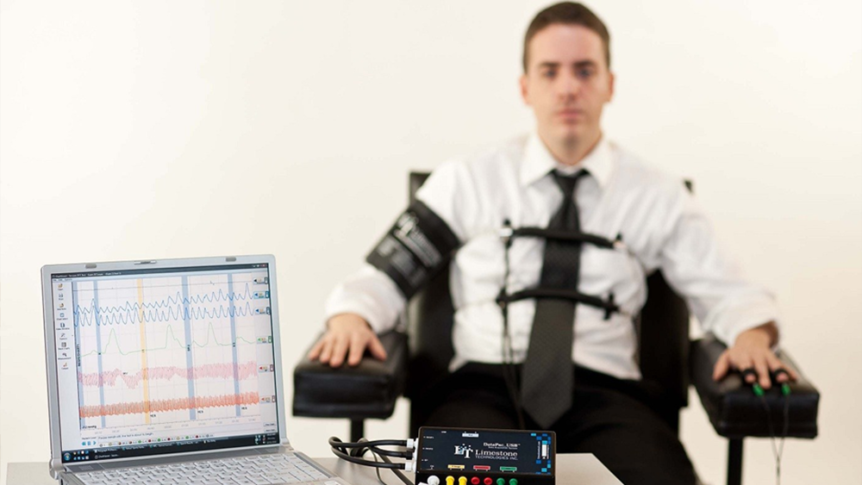Polygraphs are widely used in criminal investigations across all nations today. A polygraph measures physical body reactions, including heartbeat changes, blood pressure levels, breathing rhythm, and skin reactions during someone’s responses to test questions. When someone mentions a lie detector test, most people think of crime shows where suspects are hooked up to machines that determine whether they’re being truthful. But how reliable are these tests? You must know how accurately a lie detector test works in crime investigations, its limitations, and more key information.
The science behind lie detector operations
How do polygraphs work in Modern criminal investigations?
The lie detector test is used in modern criminal investigations to screen and eliminate suspects and build more substantial cases. A regular lie detector test observes these normal body functioning signals:
- Blood pressure fluctuations
- Pulse rate changes
- Breathing patterns
- Skin conductivity
Police departments depend on lie detector tests for these purposes:
- Narrow down suspect lists
- Verify witness statements
- Verify the honesty of information sources through testing methods
- Departments test applicants for security-sensitive roles.
Police departments use lie detector tests to support their investigation even though they cannot legally present results as evidence. The test finds specific targets for more examination. When suspects take a lie detector test, some admit to their wrongdoings. Polygraph tests help support other pieces of evidence to build stronger cases. So, a lie detector test is a direct resource for investigating suspects with a higher potential value.
How accurate are lie detector tests?
During the lie detector test uk, the examiner uses questions about the case, control questions that make the suspect tense, and neutral questions to get baseline readings. When a suspect lies, their bodies react with physical signs of stress.
But how reliable are lie detector tests? Studies indicate that lie detector tests are correct 90% of the time. The test has a one-third chance of giving wrong outcomes for specific tests. Experts agree that polygraphs detect body stress responses, not actual untruths. The difference between truth-tellers and liars matters because truth-tellers often show visible physical responses, whereas skilled liars remain relaxed.
Limitations of lie detector test
Different conditions influence how well lie detector tests perform. Those include:
- Anxiety about the test itself
- Certain medications
- Medical conditions that impact heart functions can affect test results
- Mental health issues
- Sleep deprivation
- Use of countermeasures to beat the test
A lie detector test outcome cannot be present in court proceedings across many nations. The restriction on using lie detection arises because of doubts about accuracy and the chances of getting wrong answers. Despite these limitations, police departments still use these tests to direct criminal investigations.
Faq’s:
Does any method exist to beat and deceive a lie detector test?
People can deceive lie detector tests when practising physical tricks such as perfecting their breathing and muscle movement or mentally calming themselves down. Professional examiners take test results with careful evaluation because of these issues.
What is the testing accuracy rate of lie detectors?
Lie detector accuracies range from 80 to 90% because test outcomes depend on the examiner’s technical skills, the examinee’s mental and physical health, plus the test’s environmental conditions. Even though lie detector tests work better than blind guessing, they cannot be used as solid evidence to support legal cases.
How much is a lie detector test done for?
The cost of the test depends on your location and testing reason. Specialised tests and travel expenses to the examiner may increase the overall test costs.
What is the process of conducting lie detector tests for criminal investigations?
The polygraph examination is conducted in a few phases, including a pretest interview, testing, and a post-test. Before starting the test, a few sensors are attached to the suspect’s body that record the blood pressure, pulse, respiratory rate, and sweat gland activity while answering the examiner’s questions.
Conclusion
Professional investigators find that lie detector tests give them good results despite limitations. You will get effective results by using these tests effectively as part of the total investigation work. You need to understand what a lie detector can and cannot do to make a good decision based on its results. Suppose you are looking for an expert lie detector test near me that is conducted with the highest professional standards. In that case, Global Polygraph Solutions provides services from skilled examiners with top-tier tools. The team will help you understand if a lie detector test fits your case and provide support throughout. Contact the company today and get the right help.

